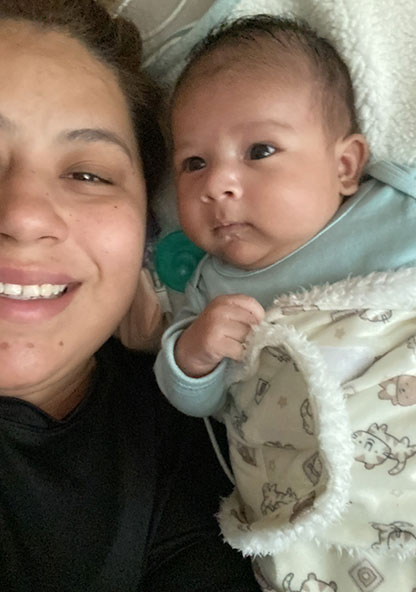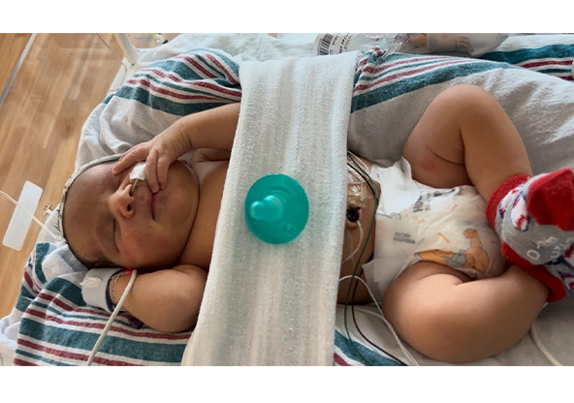A Rare Diagnosis
Michael's case of Scimitar syndrome is extremely rare and complicated. According to Dr. Gupta, he had an unusual issue where a major vein on the right side of his heart (right superior vena cava) was missing, and some of the veins that should return blood to the heart were incorrectly connected to another vein (left superior vena cava). This specific combination has not been described in medical literature before.
Despite facing challenges, including aspiration issues unrelated to Scimitar syndrome that required a G-tube for feeding, Michael showed remarkable resilience during his 40-day NICU stay.
He was on oxygen support for a few hours, but he soon was strong enough to breathe on his own. The doctors and nurses at CHRISTUS Children’s monitored his progress and adjusted treatments as needed.
Follow-up Care for Scimitar Syndrome

Although Michael does not need immediate surgery for Scimitar syndrome, he will continue to have regular cardiology check-ups with Dr. Gupta. This ongoing care is essential to monitor his heart condition, manage any potential complications, and ensure his overall well-being.
Monitoring conditions like Scimitar syndrome is crucial, especially given its rarity and complexity,
Dr. Gupta said. Regular echocardiograms allow us to track the heart's development in real-time, identify any complications early, and plan the necessary interventions. This proactive approach is essential to ensure the best outcomes and to tailor the care plan to the unique needs of each patient.
If patients continue to experience lung problems with Scimitar syndrome, such as frequent infections, or lung damage, then a procedure by cardiac catheterization may be needed. Only rarely a surgery to remove the affected lung segment is required, however, the child will require heart surgery when older.
Beating the Odds
At four months old, Michael continues to surprise everyone with how well he's doing. His bright smile and cheerful attitude demonstrate his resilience and hopefulness. His mom says he’s just like any other baby—bright, engaging, and surrounded by so much love. While the road ahead will include ongoing medical management and may involve eventual surgery, SanJuanita remains optimistic.
The compassionate care of the CHRISTUS staff has been instrumental in helping Michael thrive against all odds,
SanJuanita said. They love Michael. They've been so attentive and focused in his progress, ensuring he receives the best possible care. Their support gives me hope and strength for the journey.
Learn more about the NICU or the Heart Center at CHRISTUS Children's.




